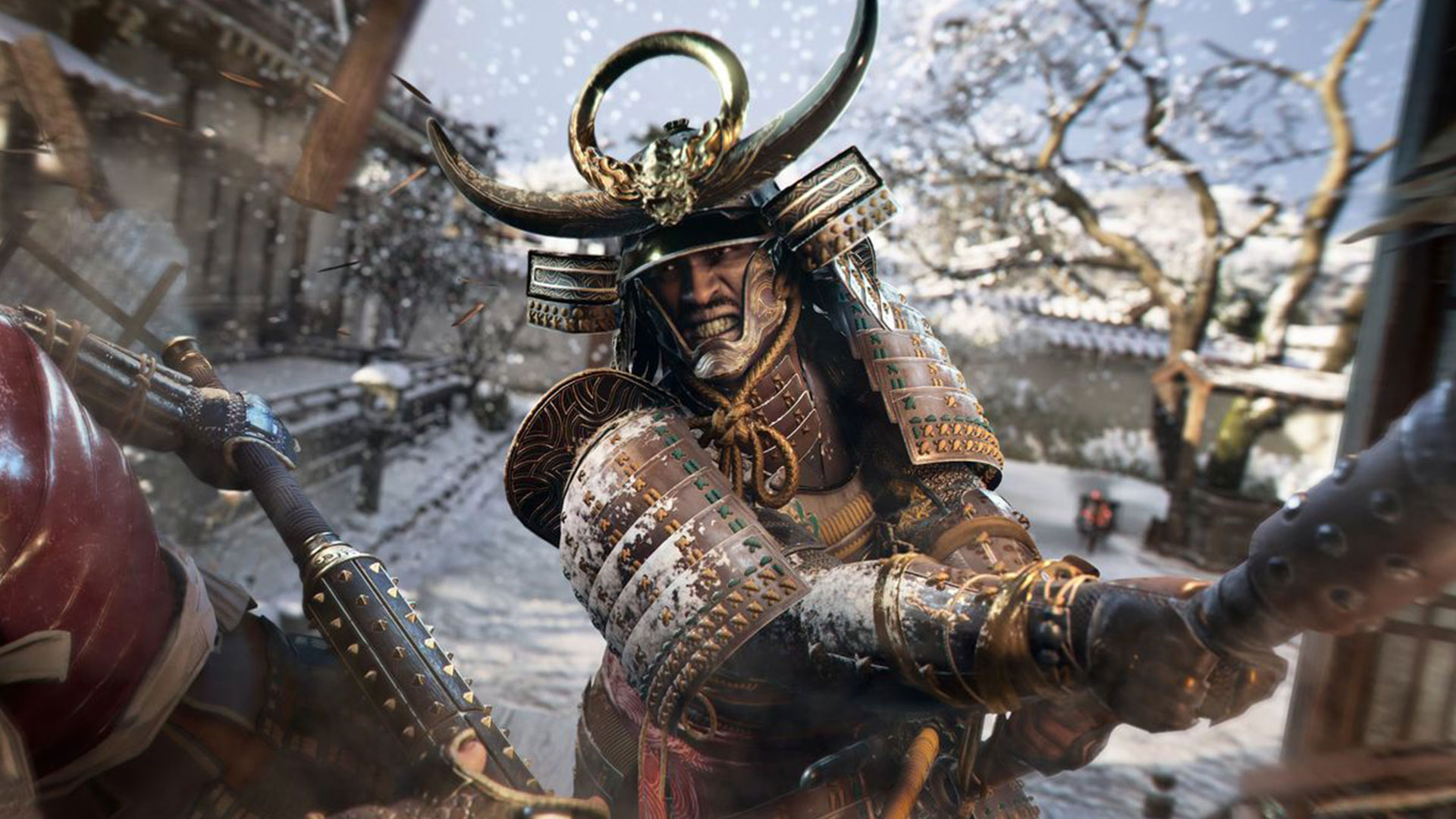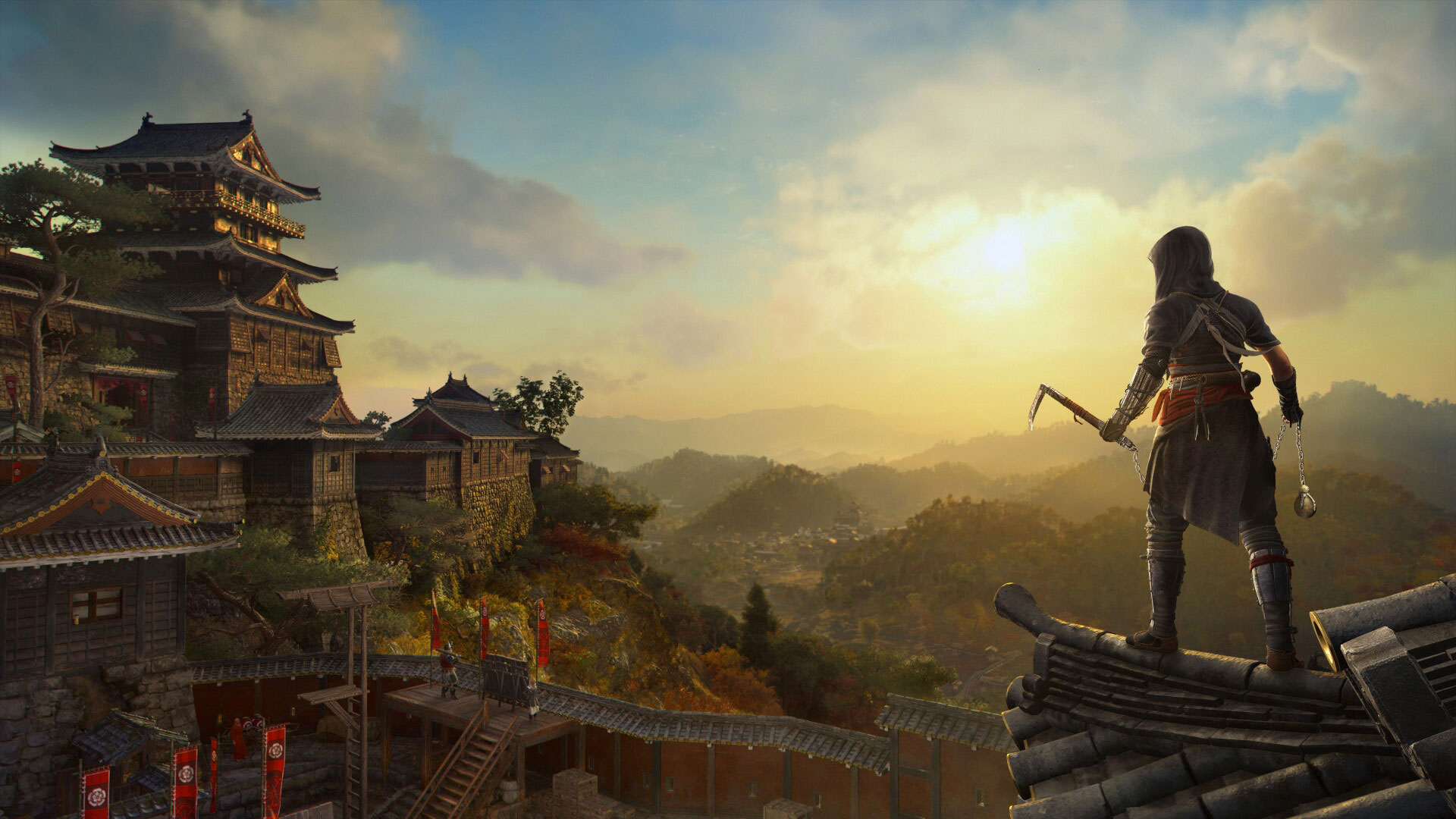Assassin’s Creed Shadows A Familiar Story, Told Well
A Familiar Story, Told Well
If you’ve ever dived into classic samurai fiction, you’ll recognize Shadows’ story beats. Honor-bound warriors roam the land, corrupt officials exploit the powerless, and bandits terrorize the countryside. It’s the kind of backdrop that fans of Shogun or Kurosawa’s legendary films will find familiar. But familiarity isn’t necessarily a flaw. The narrative stays engaging thanks to complex moral dilemmas and interwoven storylines that, like Valhalla, keep things interesting when they work. While the writing isn’t groundbreaking, there are moments of brilliance—tense encounters, reflective pauses, and unexpected twists that make it all worth it.
And then there’s the classic Assassin’s Creed conspiracy, which fits seamlessly into the war-torn Sengoku period. Much like a hidden blade slipping into its sheath, the secret struggles of assassins and templars blend effortlessly with the power struggles of Japan’s past.
Success, Failure, and Feudal Japan: Assassin’s Creed Shadows
It’s almost surprising that it took nearly two decades for Assassin’s Creed to finally embrace feudal Japan. But now that it has, Assassin’s Creed Shadows is making the most of it. This installment brings us two compelling heroes—a sharp-witted shinobi and a formidable samurai—who make sneaking through castles and diving into battle an absolute thrill. The changes this time around are subtle but meaningful: refined maps, streamlined skill trees, and a combat system that builds on what Mirage did so well. It’s not a flawless reinvention—some balance issues and missed opportunities still linger—but Shadows feels like a confident step forward for the series.

Two Heroes, One Balanced Duo
The heart of Shadows lies in its protagonists, Naoe and Yasuke. Naoe, one of the last shinobi of the Iga clan, carries the weight of personal tragedy, while Yasuke, a towering warrior, fights for justice with an unshakable resolve. Their dynamic is one of contrasts—Naoe’s calculated approach versus Yasuke’s unwavering strength. They challenge each other, support each other, and together, they shine in a tale driven by revenge and duty. They may not be as instantly iconic as Ezio or Edward, but their partnership brings a unique energy to the game’s darker themes.
Storytelling at Your Own Pace
The way Shadows structures its narrative is a refreshing take on the open-world formula. Much like Valhalla, each of the game’s nine regions plays host to its own mostly self-contained chapter, but this time, characters and story threads don’t simply disappear the moment you move on. There’s a stronger sense of continuity, making the world feel more alive.
Pacing also gets an upgrade. Past Assassin’s Creed games have struggled with filler content dragging the experience down, but Shadows trims the fat. There’s still some of that typical “go here, do this” busywork, but the game respects your time more, allowing you to explore the story in bite-sized chunks without losing track of the bigger picture. It’s a structure that works well—like reading a great book, one chapter at a time.
A Smarter Approach to Missions
Missions in Shadows are centered around an objective board—an evolution of the system seen in Mirage. It’s not just a fancy checklist; it reinforces the feeling that you’re piecing together information, uncovering hidden threats, and identifying key targets within the game’s secretive underworld.
The trade-off? It does remove a bit of the organic discovery that past games encouraged. More than once, you might unknowingly take out an enemy, only to realize later that they were part of a bigger conspiracy you hadn’t fully uncovered yet. But this system does a great job of keeping missions organized and meaningful, making it a worthwhile shift in design.
Clues play a bigger role than before, encouraging you to actually think about where your objectives might be rather than simply following a marker. You can enlist scouts to help narrow things down, but they’re a limited resource, adding an element of risk to relying on them too often. It’s a small change, but one that makes exploration feel more like detective work and less like a routine checklist.

Exploring for the Sake of Exploring
Gone are the days of overwhelming maps cluttered with icons demanding your attention. Shadows takes a more hands-off approach, marking only key points of interest and letting you discover the details yourself. Even when you climb the signature Assassin’s Creed highpoints, you won’t see every possible objective laid out for you. Instead, you’ll get hints—just enough to pique your curiosity without giving everything away.
This subtle shift makes exploration feel more natural. Rather than feeling compelled to clear an entire region just to tick off objectives, you’re free to roam, stumble upon secrets, and immerse yourself in the world without the weight of an endless to-do list.
That’s not to say there’s nothing to do. Whether it’s infiltrating castles for rare loot, riding into villages, or taking part in activities like horse archery, there’s always something interesting to discover. Some of these side activities are more engaging than others—searching for lost scrolls isn’t exactly thrilling—but they all contribute to your character’s growth, making them feel worthwhile.
A Hideout That Grows With You
Like Valhalla’s Ravensthorpe, Shadows features a hideout that evolves over time. You can gather resources like wood and minerals to upgrade buildings, unlocking new tools and abilities along the way. It’s a nice touch, though the game doesn’t force you to invest too much in it if you’d rather focus on the action.
For those who enjoy customization, there’s no shortage of options. Cosmetics are plentiful, with new outfits and decorations unlocked naturally as you progress. Even if you don’t go out of your way to collect them, you’ll still end up with an abundance of ways to personalize your character and hideout.
A Confident Step Forward
Assassin’s Creed Shadows isn’t a radical reinvention, but it doesn’t need to be. It builds on the strengths of Mirage—a more focused combat system, a streamlined world, and a return to stealth—but with enough fresh ideas to keep things exciting. While it still has room for improvement, it’s proof that the series is on the right track.
For longtime fans and newcomers alike, Shadows offers a compelling mix of strategy, action, and exploration. It’s a game that respects your time, challenges your skills, and invites you into one of the most immersive historical settings the series has tackled yet. If this is the future of Assassin’s Creed, it’s one worth looking forward to.
The Verdict
Assassin’s Creed Shadows delivers a gripping mix of stealth, action, and historical intrigue, making it one of the most immersive entries in the series yet.



